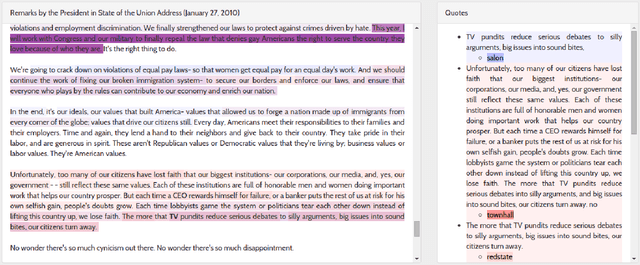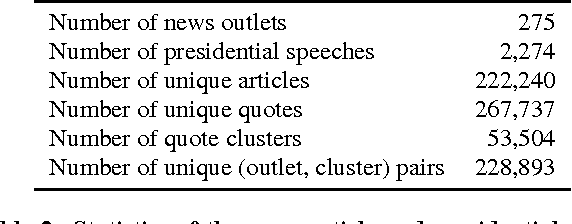Caroline Suen
QUOTUS: The Structure of Political Media Coverage as Revealed by Quoting Patterns
Apr 06, 2015



Abstract:Given the extremely large pool of events and stories available, media outlets need to focus on a subset of issues and aspects to convey to their audience. Outlets are often accused of exhibiting a systematic bias in this selection process, with different outlets portraying different versions of reality. However, in the absence of objective measures and empirical evidence, the direction and extent of systematicity remains widely disputed. In this paper we propose a framework based on quoting patterns for quantifying and characterizing the degree to which media outlets exhibit systematic bias. We apply this framework to a massive dataset of news articles spanning the six years of Obama's presidency and all of his speeches, and reveal that a systematic pattern does indeed emerge from the outlet's quoting behavior. Moreover, we show that this pattern can be successfully exploited in an unsupervised prediction setting, to determine which new quotes an outlet will select to broadcast. By encoding bias patterns in a low-rank space we provide an analysis of the structure of political media coverage. This reveals a latent media bias space that aligns surprisingly well with political ideology and outlet type. A linguistic analysis exposes striking differences across these latent dimensions, showing how the different types of media outlets portray different realities even when reporting on the same events. For example, outlets mapped to the mainstream conservative side of the latent space focus on quotes that portray a presidential persona disproportionately characterized by negativity.
 Add to Chrome
Add to Chrome Add to Firefox
Add to Firefox Add to Edge
Add to Edge